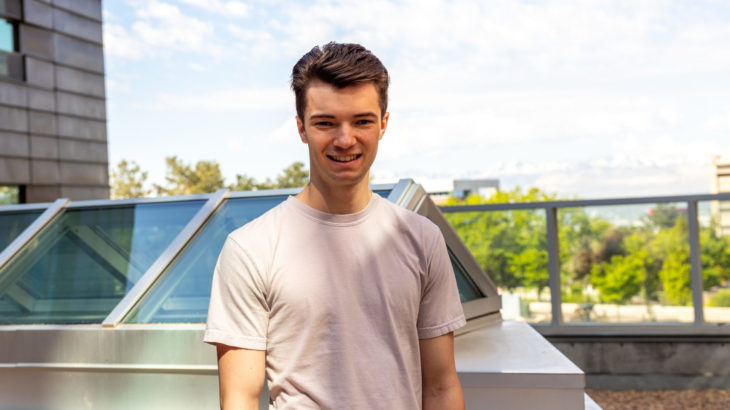If you could bring one product to the 1600s, what would it be? University of Utah applied mathematics student Spencer Marx says it’s obvious: digital healthcare devices. He is the founder of Aloe, a company working to make a handheld device for at-home ultrasounds.
As technology develops, its biggest impact will likely be on digital healthcare. The popularity and accuracy of wearable health monitors continue to rise, making it easier for patients to receive diagnoses.
“We’re looking to bring a product into the digital healthcare market using new information technology,” he said. “One of the trends we noticed is that people really care about biosensors. We thought ‘Let’s bring the most powerful biosensor we can to consumers.’ That happens to be an ultrasound.”
Early detection can be the difference between life and death, but there isn’t an easy way to get screened for multiple issues at once and repeated screenings can be time-consuming and expensive. The Aloe device will allow the user to perform an ultrasound themselves, from the comfort of their own home.
The device will use convolutional neural networks, which are deep learning architectures typically used to analyze images. The device will receive ultrasound images from the sensors and the AI will parse through the images, looking for features flagged in previous images. If applicable, the device will recommend that the user see a physician.
“We’re going to focus initially on stress fractures and muscular injuries in military recruits caused by intense training,” Marx said. “Those things can be predicted before symptoms appear or a fracture occurs. Early detection can prevent injury.”
Marx has utilized the programs at the Lassonde Entrepreneur Institute to help launch his business. He received funding through the Get Seeded program and has attended Lassonde Workshops to learn about different aspects of starting a business. He is currently working on a prototype of the device and hopes to eventually create a singular software platform for digital healthcare.



